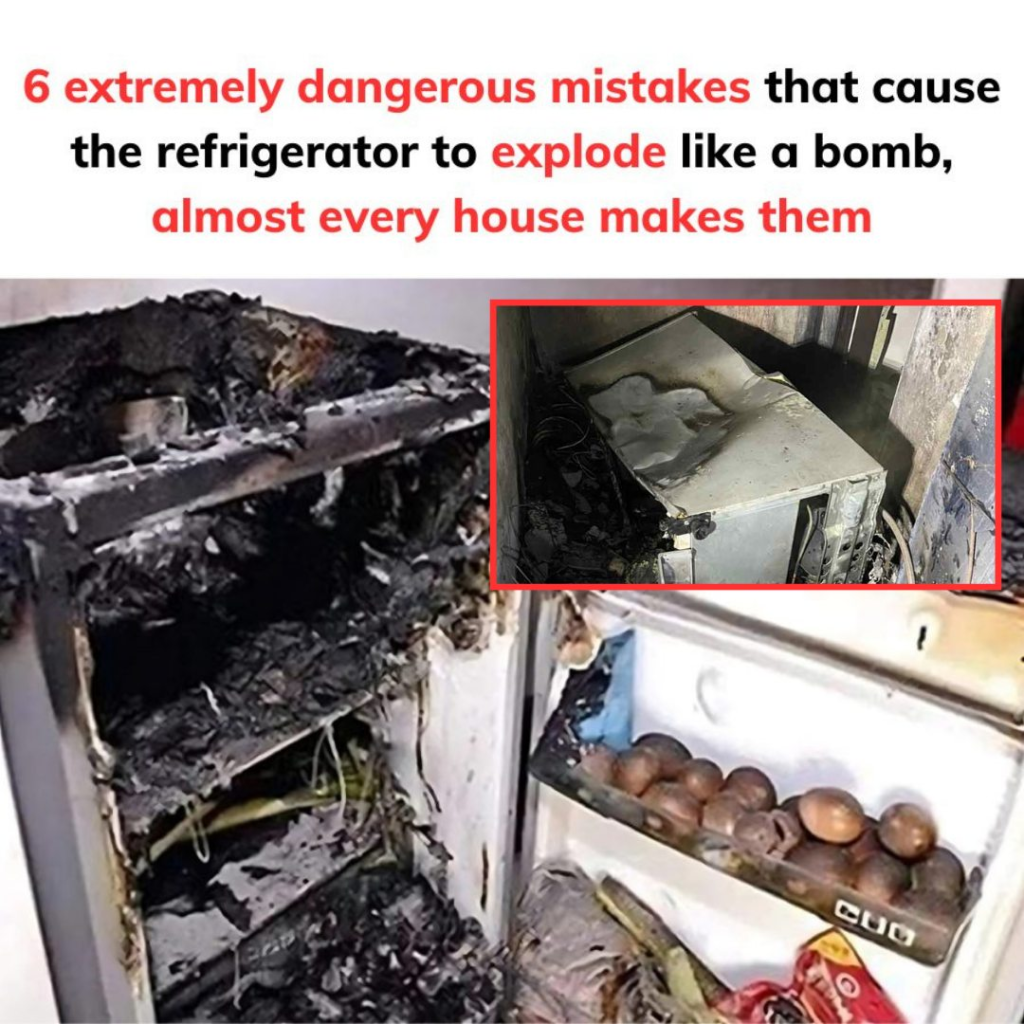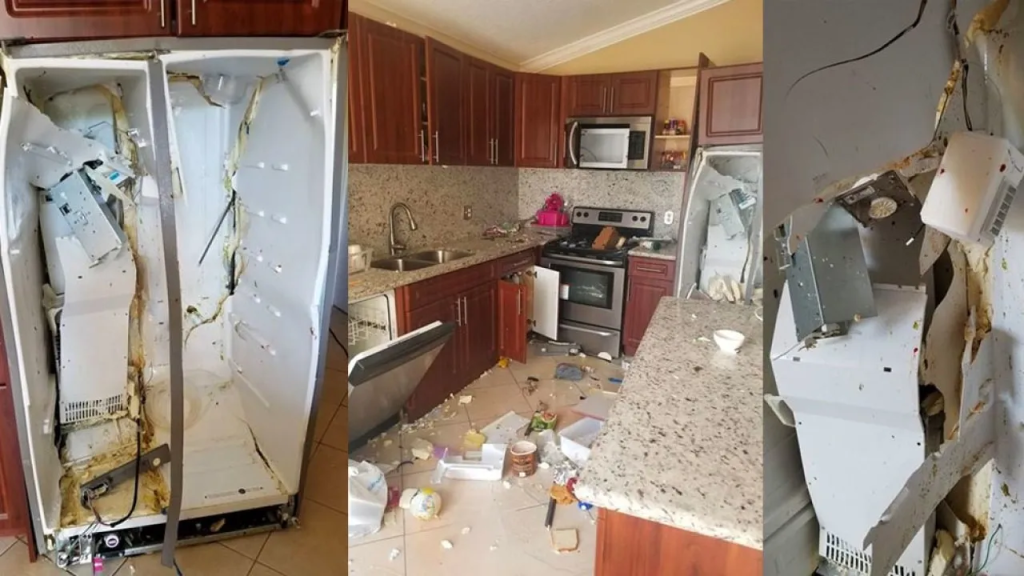Refrigerators are essential appliances in every household, keeping food fresh and drinks cold. However, as safe and reliable as they are, certain mistakes can turn them into potential hazards. Did you know that improper use or maintenance of your refrigerator could lead to dangerous explosions? Let’s delve into six common mistakes and how to avoid them to ensure your refrigerator operates safely.
1. Placing the Refrigerator Too Close to Heat-Generating Devices

Positioning your refrigerator near heat-producing appliances like ovens, microwaves, or gas stoves might seem convenient, but it’s a dangerous practice. These devices generate significant heat, which can overheat the refrigerator and increase the risk of an explosion.
When appliances like stoves or microwaves short-circuit, the heat and sparks can affect the refrigerator, potentially leading to a fire or explosion. Additionally, placing electrical wires from the refrigerator too close to flammable items such as curtains or blankets can amplify the danger. A short circuit in the wires could ignite nearby materials, quickly engulfing the refrigerator in flames.
Safety Tip: Always place your refrigerator in a cool, well-ventilated area, away from heat-generating appliances and flammable items.
2. Using an Old, Unmaintained Refrigerator
Aging refrigerators that aren’t regularly maintained pose significant risks. Old refrigerators with damaged compressors, worn-out gas lines, or dirt-clogged capillary tubes are more likely to malfunction. These issues can increase pressure inside the system, reducing cooling efficiency and raising the chances of an explosion.
Signs of an aging refrigerator include loud compressor noises, continuous running without stopping, excessive ice buildup in compartments, and poor cooling performance.
Safety Tip: Schedule regular maintenance with a professional technician to inspect and repair your refrigerator. If your unit shows persistent issues or is over 10-15 years old, consider replacing it with a newer, energy-efficient model.
3. Storing Carbonated Drinks or Alcohol in the Freezer
Placing carbonated drinks, beer, or alcohol in the freezer may seem harmless, but it’s a common and dangerous mistake. These liquids are sensitive to extreme temperatures. When exposed to freezing conditions, the pressure inside their containers can increase dramatically, turning them into potential “bombs.”
Glass bottles pose an even greater risk. As the water inside freezes and expands, the glass contracts, leading to cracks or explosions.
Safety Tip: Always store carbonated drinks and alcohol at recommended temperatures. Keep them in the refrigerator, not the freezer, to avoid dangerous pressure changes.
4. Gas Leaks and Electrical Leakage
Refrigerators operate using a gas cooling system, typically enclosed in a sturdy steel tank. While spontaneous combustion is rare, gas leaks from damaged pipes or open welds can mix with electrical sparks, creating a volatile situation.
Electrical short circuits are another culprit. Many households overload their electrical systems with power-hungry appliances like dishwashers, microwaves, and air conditioners. If the electrical line is unable to handle the demand, short circuits can occur, potentially igniting the gas from a leaking refrigerator.
Safety Tip: Regularly check for signs of gas leakage or electrical issues. Ensure your home’s electrical wiring is designed to handle high-capacity appliances.
5. Overloading an Outlet with Multiple Devices

Plugging several devices into the same outlet as your refrigerator is a recipe for disaster. Refrigerators consume a lot of electricity, and overloading a single outlet can cause overheating and short circuits. This not only risks damaging the refrigerator but also increases the chance of a fire.
Safety Tip: Use a dedicated outlet for your refrigerator. Avoid using extension cords or multi-socket adapters for high-power appliances.
6. Using Insect Repellents or Aerosols Near the Refrigerator
Using insect repellents, hairsprays, or other aerosol products near your refrigerator may seem harmless, but it can lead to dangerous consequences. These products contain flammable chemicals that, when exposed to electrical sparks from the refrigerator, can ignite and cause an explosion.
Safety Tip: Store and use chemical products away from the refrigerator and other electrical appliances. Always read the safety instructions on aerosol containers.
How to Prevent Refrigerator Explosions

- Regular Maintenance: Schedule periodic checkups with a technician to ensure your refrigerator is in optimal condition.
- Proper Placement: Position the refrigerator away from heat-generating devices and flammable materials.
- Dedicated Electrical Supply: Use a separate outlet for your refrigerator to avoid overloading circuits.
- Avoid Dangerous Storage: Refrain from storing pressurized cans, alcohol, or glass bottles in the freezer.
- Check for Leaks: Routinely inspect the gas lines and electrical components for damage.
Conclusion: Safety First for Your Refrigerator
Your refrigerator is a vital appliance, but its safe operation depends on how you use and maintain it. By avoiding these common mistakes, you can significantly reduce the risk of explosions and keep your home safe. Proper placement, regular maintenance, and careful usage are key to ensuring your refrigerator remains a reliable and safe part of your household.
Taking a proactive approach to care and safety ensures not only the longevity of your appliance but also the well-being of your family. After all, prevention is always better than dealing with unexpected and dangerous consequences.


